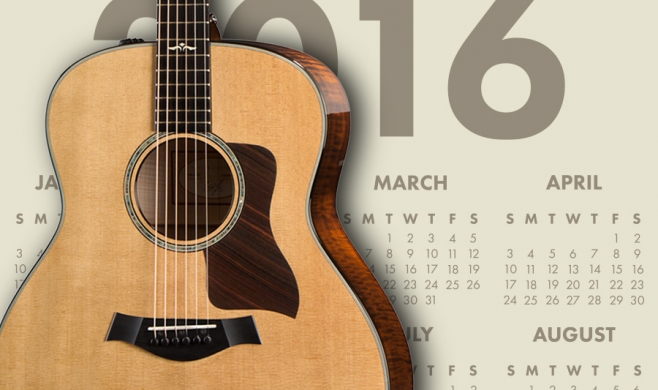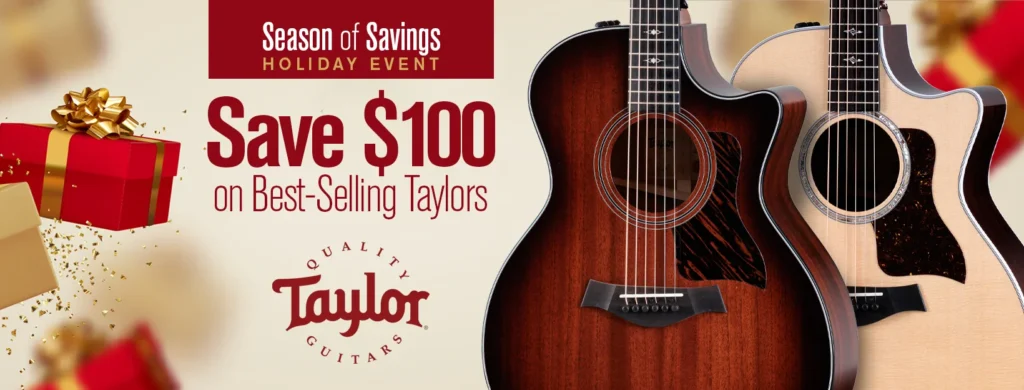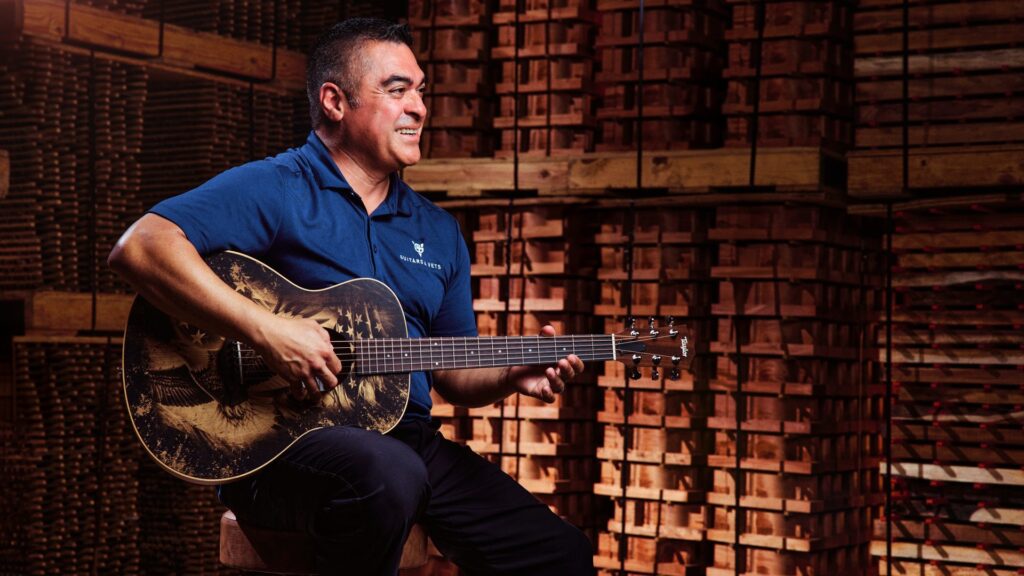Do you want to make 2016 your best guitar playing year ever? Here are five resolutions that you can add to your practice routine – and actually stick with long after you’ve given up all the others.
1. Practice less, but practice smarter.
You don’t need to practice for hours on end to become a better player; you simply have to make the best use of your practice time. A few years ago I wrote an article for Taylor’s Wood&Steel magazine called “Five Minutes a Day” (Fall 2013 edition), encouraging guitarists to make the most of just five minutes. This means serious practice. No noodling! Work on techniques and songs that challenge you, but stay focused by using the simple method of practicing for just five minutes at a time. This doesn’t mean you only practice for five minutes. Try five minutes, a one-minute rest, five minutes, a one-minute rest, ad infinitum. Once you feel comfortable with the new music, just play. Practice is great for getting better, but playing is the best for having fun.
2. Appreciate the gear you have.
Some guitarists are notorious for spending more time shopping for new gear than actually playing what they already own. Don’t be one of them. Don’t misunderstand, I own a lot of guitars, amps, etc., but I use all of them regularly — this includes sharing them with students, friends, and various educational institutions. Additionally, I also make time to appreciate my gear. I actually say “thank you” on a regular basis. I know this may sound silly, but when I heard that bass virtuoso Victor Wooten does this, I thought, why not? You don’t have to do it publicly (though I frequently introduce my guitars at shows and give them proper credit). Just find a few minutes once a week to privately express your appreciation. I believe your equipment will thank you back.
3. Teach.
Teaching is one of the best ways to become a better musician. Whether it’s showing a beginner how to strum America’s “A Horse With No Name” (one of the easiest songs to finger the chords of, but that strum can be a challenge), instructing an intermediate player how to solo over a 12-bar blues, or coaching an advanced instrumental shredder on singing, teaching can give you insight into your own playing, communication skills, and a better understanding of music in general.
4. Leave your comfort zone.
When students come to me for lessons, I always cater to them by teaching them what they want to play. And believe me, that means I’ve had to teach a lot of songs I don’t like! But I always learn something from those songs. That doesn’t mean I come away liking them — sometimes it just gives me more insight into why I don’t like them. Then I return the favor: Although I never force anyone to learn something they don’t want to learn, I do encourage fans of heavy metal to listen to The Beatles, instrumental fingerstyle snobs to strum and sing, and acoustic purists to plug in (see my article “The Perks of Plugging In” in the Fall 2014 edition of Wood&Steel). Just like me, the student doesn’t always come away convinced or converted. But either way, we both get exposed to more music, and the more points of reference we can have, the better our understanding of music and the more expansive our skill sets can become.
5. Listen more.
Les Paul once said, “People listen with their eyes.” In this age of the Internet, this seems truer than ever. I’ve seen many a flashy guitar video that had millions of views, which left me feeling musically empty. On the other hand, I’ve listened to meagerly clicked-on audio-only videos (a recent streaming trend), with headphones on and eyes closed, which allowed me to hear nuance, texture and grace that I might have otherwise missed if the video had been visually distracting. And this listening advice isn’t limited to the music of others. Listen to yourself. Really listen. As if you were the audience, not the performer. Listen for shortcomings that as the player might make you think, “I know what I was supposed to play,” but as an audience member would elicit the reaction, “That was bad.” But don’t limit yourself to criticism. Also listen as a fan. There are as many players who sell themselves short as there are egomaniacs. Try to cultivate a balance. True listening will help you find it.



























